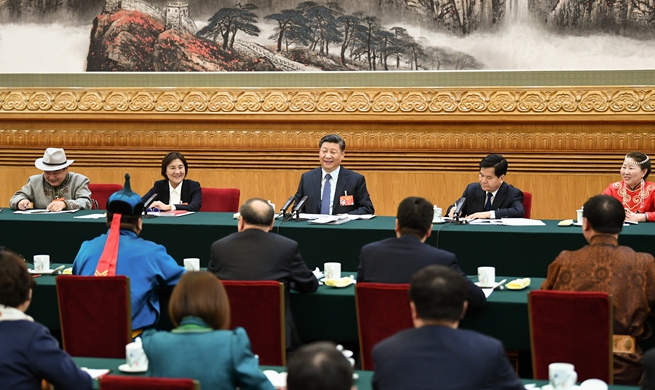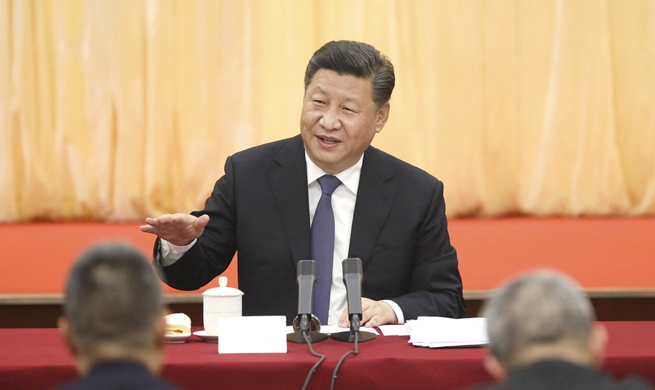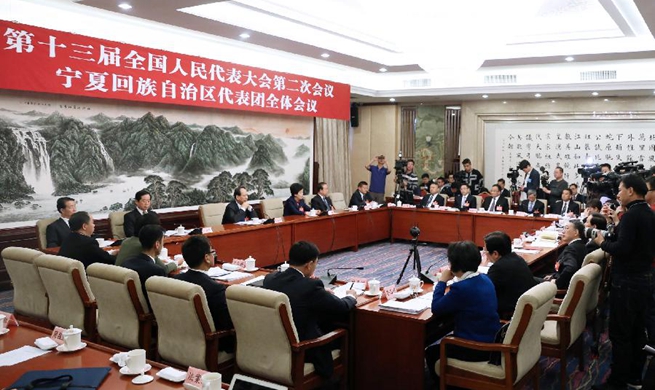LONDON, March 6 (Xinhua) -- The UK won't be ready to go cashless within the next 15 years as a sizable cash-dependent population risks being left behind, a report said on Wednesday.
Currently, cash is used to make three in ten transactions, down from six in ten a decade ago. But it could fall as low as one in ten in the coming 15 years, the latest report by the Access to Cash Review predicted.
However, over eight million adults, or 17 percent of the UK population, would struggle to cope in a cashless society, which means a cash infrastructure is still needed to make sure millions of people won't be left behind, it warned.
Though digital payments has become the first choice of payment for many, still there are people in the UK who use cash out of necessity, not choice, said the report, funded by by LINK, the UK's largest cash network, but independent from it.
It found poverty, rather than age, is the biggest indicator of cash dependency, refuting a widespread perception that the elderly are the most reliant on cash. Infrastructure poses another significant barrier as a lack of broadband or reliable 4G mobile data coverage makes digital access difficult for those living in remote or rural areas.
The report believed cash payment can be under threat for two reasons. First, cash access is reduced in some areas due to closure of ATMs and bank branches. Second, rising costs of handling and accepting cash will lead to an increasing number of retailers to go cashless.
The refusal to accept cash by merchants and retailers is more likely to drive the death of cash than issues around cash access, it concluded.
It warned against leaving cash payment at the mercy of market forces, and urges the government and financial services regulators to take action to ensure cash remains viable for as long as people need it.
Natalie Ceeney, independent chair of the Access to Cash Review, said: "There are worrying signs that our cash system is falling apart. ATM and bank branch closures are just the tip of the iceberg, underneath there is a huge infrastructure which is becoming increasingly unviable as cash use declines."
Nicky Morgan, chair of the Parliament's Treasury Select Committee, said, the complexity of this issue cannot be overstated, but the simple truth is that leaving the future of cash to be determined by market forces will not work.
The report recommended a "guarantee" of cash access beyond cash machines, like convenience store cashback, Post Offices and other innovative ways. It also suggested the cash infrastructure should be made lower cost and more sustainable and digital payments technology should be developed in a more inclusive way.
Ron Delnevo of the ATM Industry Association was quoted by the BBC as saying that there should be a requirement, backed by law, on businesses to accept cash, mirroring moves by some local authorities in the United States.













